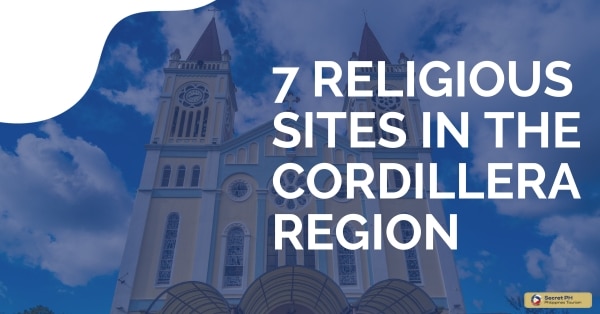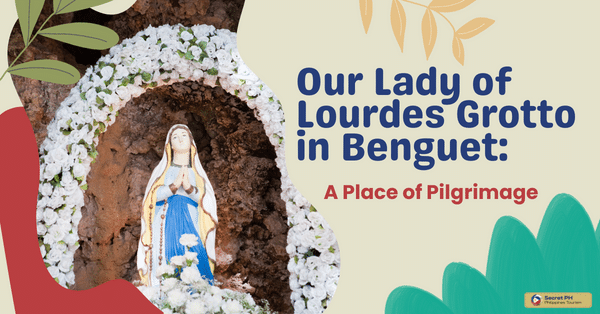Women have played an important role in Philippine religious communities as spiritual leaders, participants in religious rituals, and advocates for social change. Despite facing challenges such as patriarchal attitudes and limited opportunities, there have been initiatives to empower them through education, leadership development, and advocacy. Acknowledging and supporting women’s contributions is crucial to advancing and shaping Philippine religious traditions.
In this article, we will discuss the role of women in Philippine religious communities, highlighting the challenges they face and the efforts being made to empower them. We will also examine how gender and class intersect with religious beliefs in the Philippines. By understanding these dynamics, we can better recognize and appreciate the role that women play in Philippine religion and culture.
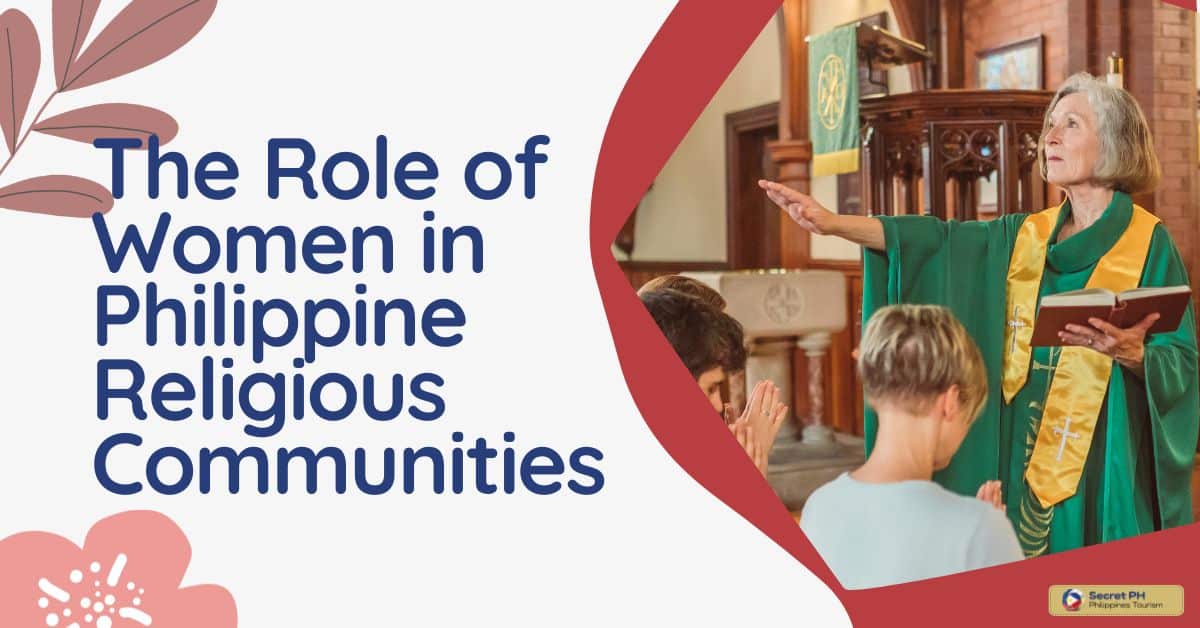
Women as Spiritual Leaders in Philippine Religion
In Philippine religion, women have been recognized as spiritual leaders for centuries. Historically, women have held various roles in religious communities, including priestesses, healers, and spiritual advisors. They have played a significant role in guiding and nurturing the spiritual lives of their communities.
Today, women continue to serve as spiritual leaders in the Philippine religion. With some assuming official roles in religious institutions such as Catholic nuns and Protestant pastors.
In addition, women also lead independent spiritual groups and participate in interfaith organizations. Despite some resistance from patriarchal attitudes, the role of women as spiritual leaders in Philippine religion is an integral part of the country’s religious landscape.
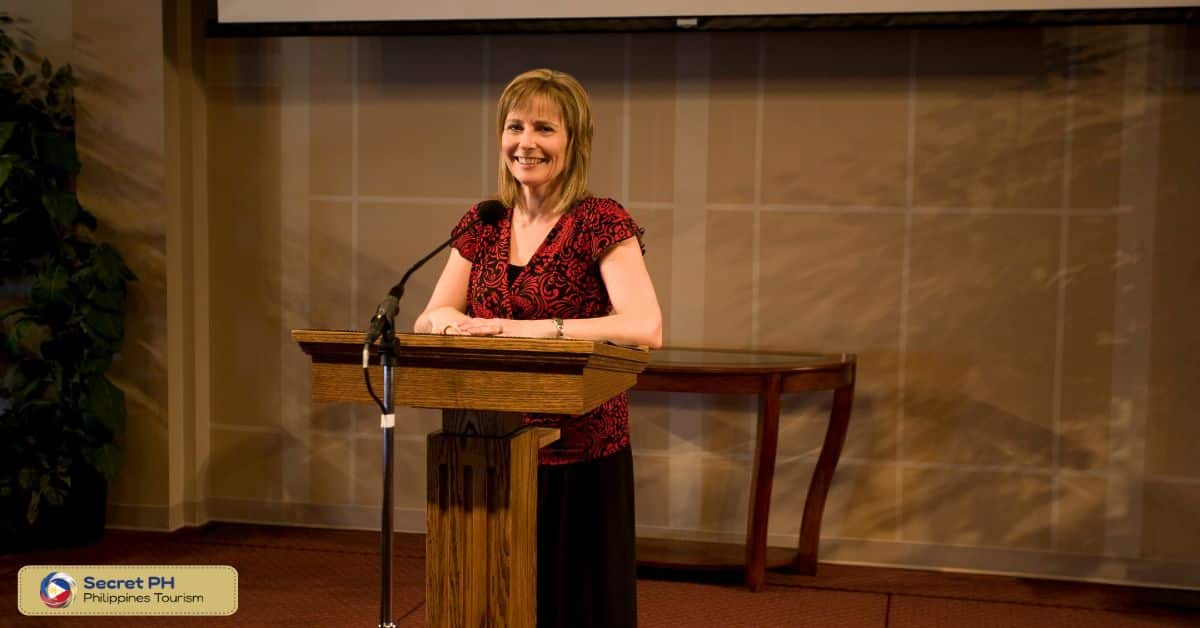
Women’s Participation in Religious Rituals and Traditions
Women in the Philippines have always been active participants in religious rituals and traditions. They play a significant role in the celebration of religious holidays and the observance of sacraments. Including preparing and cooking food for communal feasts and performing dances and songs during religious processions.
The participation of women in religious rituals and traditions is significant, as it fosters a sense of community and belonging. It provides an opportunity for women to express their faith and devotion, contributing to their overall well-being and spiritual growth. Despite challenges, women’s participation in religious rituals and traditions in Philippine culture has been enduring, highlighting the important role that women play in preserving and enriching the country’s religious and cultural heritage.
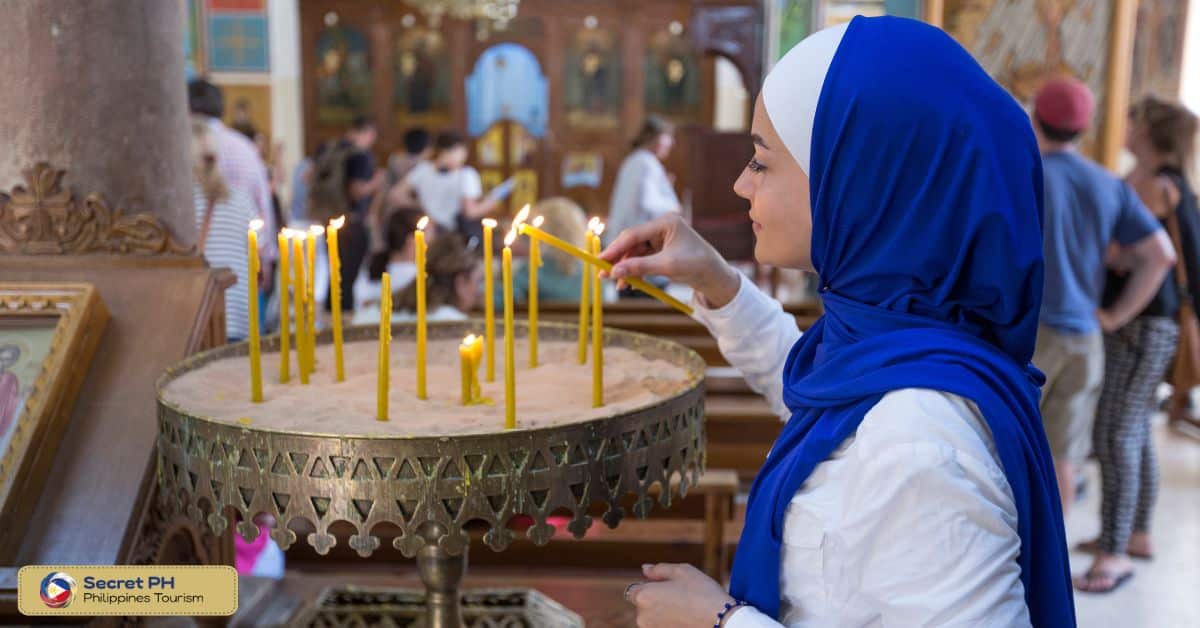
Challenges Faced by Women in Philippine Religious Communities
While women have always played a crucial role in Philippine religious communities, they continue to face various challenges that limit their full participation and contribution. These challenges are rooted in social and cultural norms that perpetuate gender inequality. Leaving women with fewer opportunities to lead and shape their religious communities.
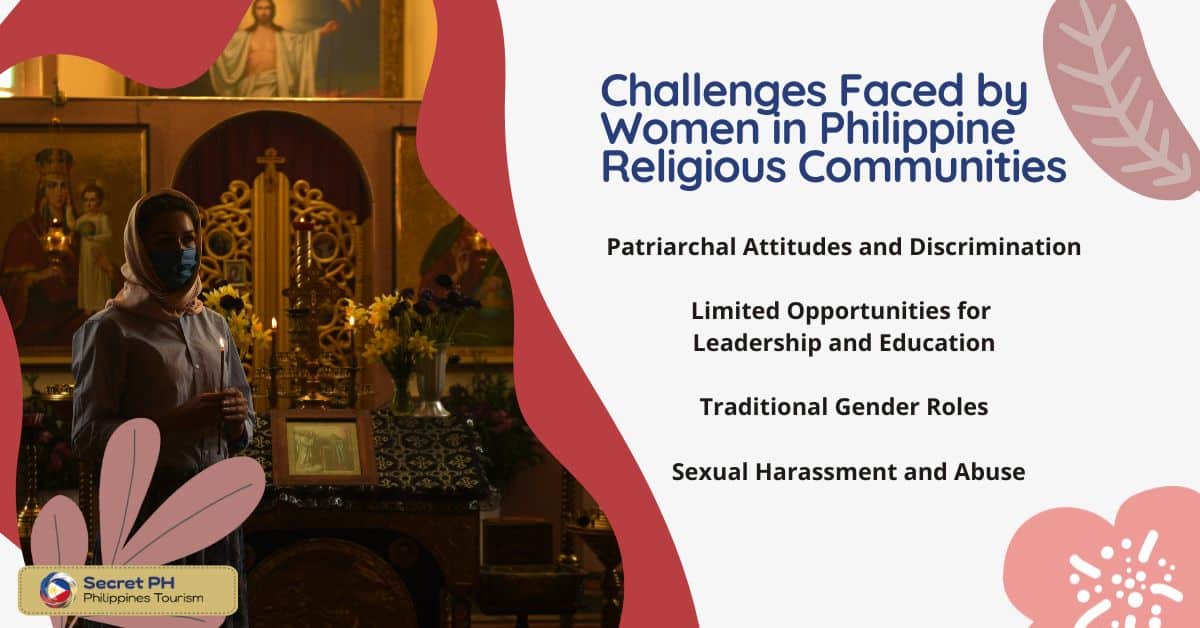
Patriarchal Attitudes and Discrimination
Patriarchal attitudes and discrimination are prevalent in Philippine society, including within religious communities, where men are often perceived as superior to women. Women are denied opportunities to lead and participate fully in religious activities, and their contributions are often undervalued.
Patriarchal attitudes and discrimination perpetuate gender inequality and limit the potential of women in shaping and advancing their religious traditions. It is crucial to address these issues and promote gender equality to enable women to participate fully and equally in religious communities.
Limited Opportunities for Leadership and Education
Women in Philippine religious communities also face limited opportunities for leadership and education. Religious institutions are often male-dominated, and women are not given equal access to leadership positions and educational opportunities, limiting their ability to shape and influence their communities.
Traditional Gender Roles
Traditional gender roles in Philippine society often place women in domestic and supportive roles. Limiting their opportunities for leadership and engagement in various fields, including religious institutions.
These roles reinforce gender stereotypes and create expectations for women that can be challenging to break. Addressing traditional gender roles is essential for promoting gender equality and allowing women to participate fully in their communities and pursue their aspirations.
Sexual Harassment and Abuse
Sexual harassment and abuse are prevalent issues in Philippine society, including within religious communities. Women are at a higher risk of experiencing these abuses, with some perpetrators being religious leaders themselves.
The stigma surrounding sexual harassment and abuse can prevent victims from coming forward, making it difficult to hold perpetrators accountable. It is crucial to raise awareness about these issues and promote a culture of safety and respect within religious communities to address and prevent sexual harassment and abuse.
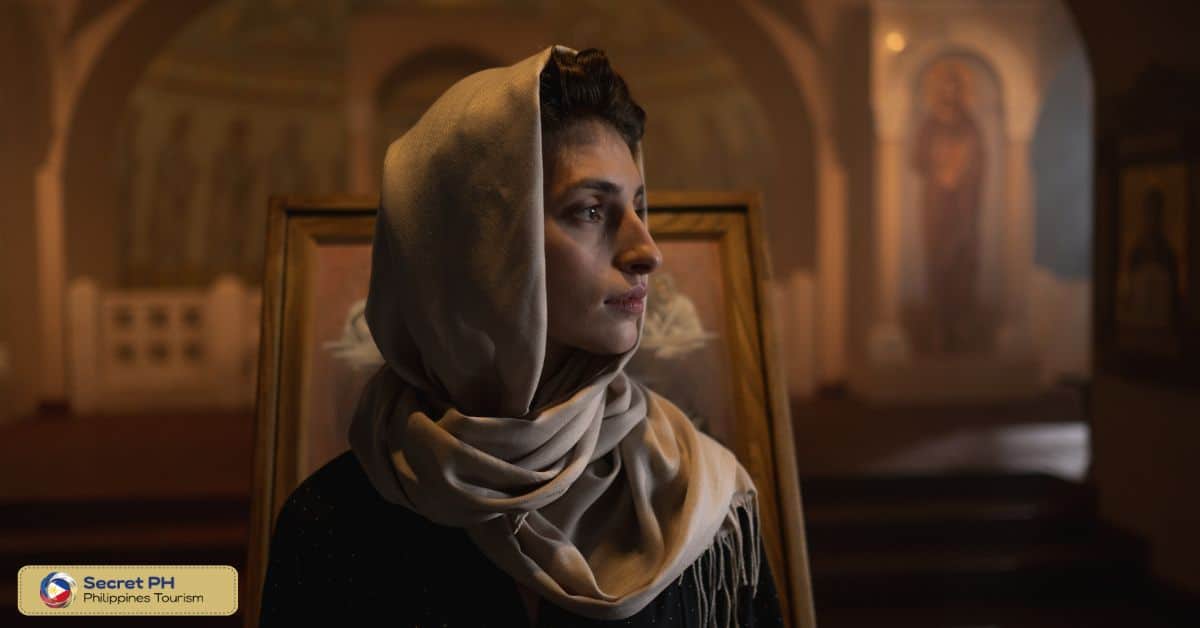
Intersection of Gender and Class in Philippine Religious Communities
The intersection of gender and class is a significant issue faced by women in Philippine religious communities. Women from lower socioeconomic backgrounds face greater barriers in accessing education and leadership opportunities, limiting their potential contributions to their religious communities.
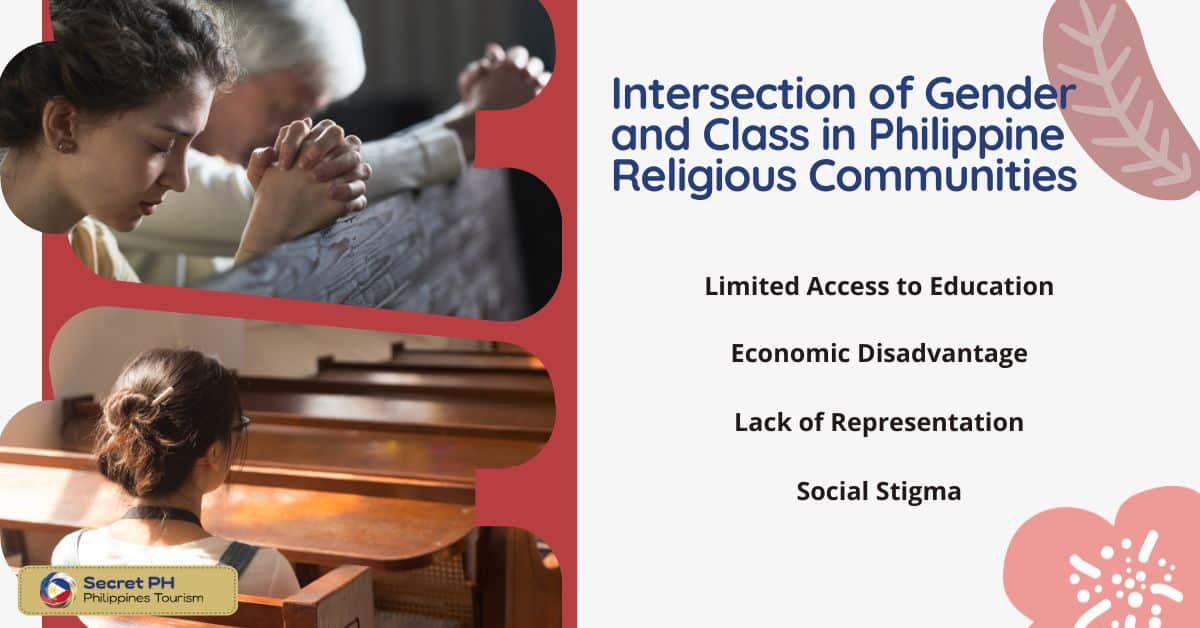
Limited Access to Education
Women from lower socio-economic backgrounds in Philippine religious communities face limited access to education. Which can be a significant barrier to their leadership and advocacy roles. Without proper education, women are often unable to advance in their careers or become leaders in their religious communities.
Economic Disadvantage
Economic disadvantage is another challenge faced by women in Philippine religious communities. Women from lower socio-economic backgrounds may have to work multiple jobs or care for their families. Leaving them with limited time and resources to participate in religious activities or pursue leadership roles.
Lack of Representation
Women from lower socio-economic backgrounds are often underrepresented in leadership positions in Philippine religious communities. Religious institutions are often dominated by men from higher socio-economic backgrounds. Making it difficult for women from lower socio-economic backgrounds to have their voices heard or influence their communities’ decision-making processes.
Social Stigma
Women from lower socioeconomic backgrounds also face social stigma and discrimination, which can limit their opportunities and impact their self-esteem. The social stigma surrounding poverty can create a perception that women from lower socio-economic backgrounds are less capable or less deserving of leadership roles in religious communities.

Efforts to Empower Women in Philippine Religious Communities
Efforts to empower women in Philippine religious communities have been growing in recent years. These initiatives aim to promote gender equality, increase women’s participation in religious activities, and create opportunities for women’s leadership and advocacy roles.
1. Women’s Leadership Training Programs-Several organizations have implemented women’s leadership training programs to equip women with the skills and knowledge needed to become effective leaders in their religious communities. These programs provide training in areas such as public speaking, conflict resolution, and community organizing.
2. Advocacy for Women’s Rights– There is a growing movement to advocate for women’s rights and gender equality in Philippine religious communities. These initiatives aim to challenge patriarchal attitudes and promote women’s leadership roles in religious institutions.
3. Women’s Empowerment Networks– Women’s empowerment networks have been established to create a community of women who support and empower each other. These networks provide a platform for women to share their experiences, exchange ideas, and collaborate on projects that promote gender equality in religious communities.
4. Inclusive Policies and Practices– Some religious institutions are implementing inclusive policies and practices to promote gender equality and empower women. These policies include affirmative action programs, gender-sensitive language in religious texts, and increased representation of women in leadership positions.

In conclusion
Women have played an important role in Philippine religious communities as spiritual leaders, participants in religious rituals, and advocates for social change. Despite facing challenges, there have been initiatives to empower them through education, leadership development, and advocacy.
Acknowledging and supporting women’s contributions is crucial to advancing and shaping Philippine religious traditions. By creating a more inclusive and equitable environment, we can ensure that women’s voices are heard and their potential is fully realized in Philippine religious communities.


